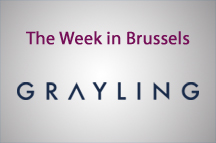 Europe – and particularly the EU Institutions – are watching and waiting in expectation of Article 50 being triggered sometime in March.
Europe – and particularly the EU Institutions – are watching and waiting in expectation of Article 50 being triggered sometime in March.
Whilst the UK political establishment discusses the whys and wherefores of triggering Article 50, whether it is a good thing or not, and how much of a say they will get on the final agreement, in Brussels it is all seen as a fait accompli.
The Brexit vote may have come as a shock initially, but in the intervening period a sense of reality has dawned in Europe. They ask not “will they trigger Article 50?” but “when?”
Moreover, the EU’s life has been made significantly easier since Theresa May’s speech in January outlining her plans to leave both the Single Market and the Customs Union – now, at least, they know what they are dealing with.
That said, uncertainties remain. Just what kind of customs agreement does the UK want? What about the rights of EU citizens in the UK, and vice versa? And how can the EU make leaving look like a bad decision, or at least something other countries should not envy?
Wait for trade
 Chief Negotiator for the European Commission Michel Barnier has made clear that he does not expect to broach trade discussions until at least the “divorce bill” (the amount the UK is expected to pay the EU to fulfill its existing contracts), as well as the rights of EU citizens in the UK, are both agreed.
Chief Negotiator for the European Commission Michel Barnier has made clear that he does not expect to broach trade discussions until at least the “divorce bill” (the amount the UK is expected to pay the EU to fulfill its existing contracts), as well as the rights of EU citizens in the UK, are both agreed.
This puts the UK in a tight spot, since it was desperately hoping to finalise both an exit agreement and a trade deal during the two-year negotiations. The EU knows how difficult this will be and is making no promises. Indeed, if it did agree a trade deal it would go against the EU’s own mantra, namely that no trade deals can be negotiated by the UK until it has left the bloc.
There will be tensions within the EU as well. Whilst there is indeed a political appetite to punish the UK, if only to dent the progress of populist movements across Europe, in countries such as Ireland it is critical that as little changes as possible.
Ireland, particularly exposed to Brexit, cannot afford for there to be a “hard Brexit”, which will likely lead to a “hard border” on the island of Ireland, and – in the worst case scenario - a possible reopening of historical wounds and future violent conflict.
Underestimate political capital
There are many interests to assuage for the like of Mr Barnier just within his own camp. He can therefore be forgiven for not putting UK economic wellbeing at the top of his agenda. Certainly, if the UK Parliament were to reject the final deal, there would be no appetite in the EU to start all over again.
The UK frequently underestimates the political capital across Europe that has gone into preserving the EU and particularly the Euro. EU Member States will take an economic hit if it means the EU is stabilised and perhaps even strengthened longer-term following Brexit.
It all leads to the conclusion that the UK would do well to try and see things from the other side, rather than engage in further navel-gazing.
Doing so will surely inform their own approach and broaden their understanding of other countries’ interests in the upcoming negotiations, as well as go some way to ensuring that the Brexit negotiations do indeed end in a “win-win” situation – even if this seems highly unlikely at the present time.














